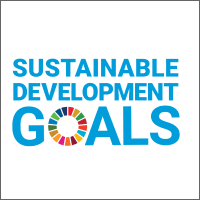SOCIAL PRACTICE
All years
2025
2024
2023
2022
2021
2020
2019
2018
2025
2024
2023
2022
2021
2020
2019
2018
|
Feb 17, 2024
CCU Crime Research Center Survey: Satisfaction with Police Policing Rises Significantly
|
Apr 10, 2021
Embracing Uncertainty and Initiating Morph Mode – Bringing Innovation and Creativity to Work
CCU SDGs
|
Jan 01, 2021
National Chung Cheng University and Yunlin County Government optimize the Dounan Reciprocal Hub for Old and Young
National Chung Cheng University (CCU) and Yunlin County Government formally signed a cooperation agreement. Through resource sharing and cooperation between the academic and public sectors, the Dounan Reciprocal Hub for Old and Young will be built into the best demonstration base that meets the needs of the elderly society.

|
Jan 01, 2021
Financial Status
<p><span style="color:rgb(0,0,0);">The total business revenue in 2020 sums up to 2,761,728,807 NTD, including 1,249,951,530 NTD of teaching revenue (tuition and miscellaneous fees exemption income, work-study program, and university extension income), 1,324,854,714 NTD of other business revenue (139,593,527 NTD of government subsidy income), including school research in teaching and other subsidies income and miscellaneous business income, 20,123,568 NTD of premium income and 166,798,995 NTD of business income.</span><br><br><span style="color:rgb(0,0,0);">The total business expenditure in 2020 sums up to 3,055,973,820 NTD, including teaching expenditure consisting of research in teaching, school discipline and guidance expenditure, work-study program expenditure, and the University extension expenditure summing up to 2,262,625,911 NTD. Other business expenditures (sponsorships and incentives for students), management, general affairs, and other business expenditures (miscellaneous business expenditure) sum up to 669,747,430 NTD, and the non-business expenditure sums up to 2,360,479 NTD. The deficiency sums up to 294,245,013 NTD this year.</span></p>
|
Jan 01, 2021
Academic Ethics and Integrity
<p><span style="color:rgb(0,0,0);">In order to build the institution of academic ethics and research integrity in CCU, our school enact regulations such as Self-Discipline Norm on Academic Ethics and Research Integrity Management in CCU, Establishment Directions on Academic Ethics and Research Integrity for Offices in CCU, Directions for Implementing the Academic Ethics Education for Teachers and Researchers in CCU, and Operation Guidelines on the Case of Academic Ethics and Research Integrity for Researchers in CCU. By doing so, we can improve the academic ethics and integrity of researchers in CCU, deepen the education on academic ethics, and fairly process the cases that violate the regulations on academic ethics and integrity. The Office of Research and Development in CCU promotes the importance of academic ethics by setting online theme area and holding education training regularly.</span></p>
|
Jan 01, 2021
Communication with stakeholders
<p><span style="color:hsl(0,0%,0%);">Our school develops a homepage news column, school paper, internship media, Facebook fans page, annual report etc. communication tunnels to announce the school information. Secretariat establishes alumnus webmail, School Affairs Advice System, feedback mail providing to alumnus, students, communities, students parents for reflections and opinions providing. After organizing, the school will inform the relative school administration organization to progress the follow-up reply.</span></p>
|
Aug 01, 2020
Does Public Participation Achieve Social Equity? An Analysis of Revitalization of Environmentally Vulnerable Rural Communities in Taiwan
<p><span style="color:hsl(0,0%,0%);">The theory of Pluralist Democracy posited that public participation help achieve</span></p><p><span style="color:hsl(0,0%,0%);">social equity. The purpose of this research is to examine the relations between</span></p><p><span style="color:hsl(0,0%,0%);">public participation and social equity in the context of rural revitalization policy</span></p><p><span style="color:hsl(0,0%,0%);">processes in the environmentally vulnerable villages. The theory of Pluralist</span></p><p><span style="color:hsl(0,0%,0%);">Democracy contended that the public interest can be developed through dialogue</span></p><p><span style="color:hsl(0,0%,0%);">among diverse interests. Accordingly, the public interest-oriented policy can be</span></p><p><span style="color:hsl(0,0%,0%);">formulated and social equity can therefore be reached. This argument has made</span></p><p><span style="color:hsl(0,0%,0%);">public participation crucial in the democratic society. However, the characteristics</span></p><p><span style="color:hsl(0,0%,0%);">of rural villages formed barriers for villagers participation in public affairs. Does</span></p><p><span style="color:hsl(0,0%,0%);">social equity become unachievable dream for such villages? How can the</span></p><p><span style="color:hsl(0,0%,0%);">relations between public participation and social equity be redefined in the rural</span></p><p><span style="color:hsl(0,0%,0%);">villages? Through field observations, in-depth interviews, and questionnaire</span></p><p><span style="color:hsl(0,0%,0%);">surveys, this research intends to investigate the relations between public</span></p><p><span style="color:hsl(0,0%,0%);">participation and social equity in the formulation and implementation processes of</span></p><p><span style="color:hsl(0,0%,0%);">revitalization programs in the 12 environmentally vulnerable villages in Chiayi</span></p><p><span style="color:hsl(0,0%,0%);">County, Taiwan. This study extends the investigation to the three factors affecting</span></p><p><span style="color:hsl(0,0%,0%);">public participation, that is, natural environmental pressure, revitalization</span></p><p><span style="color:hsl(0,0%,0%);">approach, and government s recognition of public participation. This research</span></p><p><span style="color:hsl(0,0%,0%);">expects to initiate a theoretical dialogue with the theory of Pluralist Democracy,</span></p><p><span style="color:hsl(0,0%,0%);">Deliberative Democracy, and Public Participation by providing rural-village</span></p><p><span style="color:hsl(0,0%,0%);">specific insights. Practically, this study intends to provide grassroots policy</span></p><p><span style="color:hsl(0,0%,0%);">recommendations to regional revitalization policy formulation recently promoted</span></p><p><span style="color:hsl(0,0%,0%);">by Taiwan s government.</span></p>
|
May 21, 2020
Local Road Tree Reservation Issues for Peace, Justice and Strong Institutions
To promote UN SDG 16 goal for,Have written policies and procedures to identify local stakeholders external to the university and engage with them,National Chung Cheng University has gone into partnership with the following association. <p></p>
|
May 20, 2020
2020 Chat with the Principal for Peace, Justice and Strong Institutions
To promote UN SDG 16 goal for,Provide a neutral platform and ‘safe’ space for different political stakeholders to come together to frankly discuss challenges,National Chung Cheng University has organized the following workshop. <p></p>
|
Nov 01, 2019
Letter of intent in Legal Service with Chiayi County Office for Peace, Justice and Strong Institutions
To promote UN SDG 16 goal for,Have an existence of participatory bodies to recognize and engage local stakeholders, including local residents, local government,local private, local civil society representatives,National Chung Cheng University has gone into partnership with the following association. <p></p>